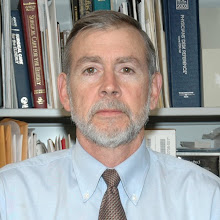 A few weeks ago Tucker Daniel, Lynn and I took a trip to Rurrenabaque, Madidi, and Copacabana. All aspects of the trip went well. We were grateful about the expertise of the guides, both in navigating us up river into Madidi National Park and in conducting our day and night hikes on the trails around the lodge and in the canoes on the lake. At Chalalán a mix of mostly European travelers as varied as the wildlife hooting in the surrounding ecosphere gathered day or night at the main hall before disappearing into the dense forest to see the abundantly differentiated plants and animals flourishing in this preserve. Of those groups we saw return to the lodge, the individual faces beneath perspiration streaks and fumes of bug repellent always seemed to express quiet, pleased amazement that such natural beauty really exists, a world apart from their own routines, necessities, obligations and aspirations. Our own faces shared the amazement.
A few weeks ago Tucker Daniel, Lynn and I took a trip to Rurrenabaque, Madidi, and Copacabana. All aspects of the trip went well. We were grateful about the expertise of the guides, both in navigating us up river into Madidi National Park and in conducting our day and night hikes on the trails around the lodge and in the canoes on the lake. At Chalalán a mix of mostly European travelers as varied as the wildlife hooting in the surrounding ecosphere gathered day or night at the main hall before disappearing into the dense forest to see the abundantly differentiated plants and animals flourishing in this preserve. Of those groups we saw return to the lodge, the individual faces beneath perspiration streaks and fumes of bug repellent always seemed to express quiet, pleased amazement that such natural beauty really exists, a world apart from their own routines, necessities, obligations and aspirations. Our own faces shared the amazement.[Time passes....Different cups of coffee come and go....Two days later and just now after a dash (well, with joint pain, more at shuffle, but with much focus and flailing of arms as though my intent were a toss-up: jog or fly, or, conflatedly, flog) to round up and hustle out the garbage3 to the passing truck before the ding of its bell fades around the corner (the truck arrived early today, but it did arrive!), I can jot a bit more.]
Our Chalalán guide walked us through a brimming catalogue of Madidi wildlife. A native of the Tacana-Quechua community there and an experienced guide, he broadened our understanding of the complex, interrelated balance of the plant and animal life surrounding us. He told us about the uses of the plants for food, for health, for hunting, for building dwellings that seem to spring up organically from the surrounding forest, just as the Incas formed a stone city in the shelter of the mountains at Machu Picchu.4 Slowly we all experienced a tremendous sense of peace as we stood still to gaze at random shafts of mid-morning sunlight touching the forest floor, or to isolate the sound of a bird call from the wind in the tree branches high in the canopy.
Is finding paradise—let alone holding on to it—ever easy? Our journey into Madidi lasted only a few days. It had none of the life-threatening experience of President Theodore Roosevelt's brave but apparently reckless trip to the Brazilian Amazon region a century earlier.5 Lynn, Tucker, and I were there just to experience the environment, respect it, and to appreciate the way the Tacana-Quechua community worked together to create an environmentally low-impact tourism business that benefitted the people. We understood from our guide that through taking the risk to build Chalalán and sharing the labor to reward the visitors, the community had a new school and a small hospital. We also understood that the survival of the Madidi environment was once again being threatened by the current government's renewal of plans to build the Bala dam, a project that would generate hydroelectric power to sell to Brazil at the expense of submerging most of Madidi National Park. I preferred to think that Chalalán, its people, and this region would stay above water on their own power, without even the intercessions of a Santo Daime, just pristine natural beauty.
So, if a trip to Bolivia sparkles on your horizon, don't just pop in to extract the lithium and be on your way. Saunter by the old albergue at Chalalán, and ask for Norm. He'll show you a great time. He'll make you want to come back. He'll make you want to keep it so there's a place to come back to. Ah yes, and Copacabana? That's a better site for a big lake, and they've already got one:
__________
1 Yowsa-yowsa-yowsa-cowabunga-yeehaw-woohoo! And may we all avoid becoming parodies of ourselves.
2 A film study/discussion group held at Pastoral Juvenil, where Catholic students who attend San Simon University live and work. San Simon is state supported, so religious ministry cannot take place on campus. The Pastoral Juvenil building is about five blocks away from campus. L, a young friend from our own Barrio Magisterio (there are three in Cochabamba), is doing well in her first semester there.
3 Those acquainted with the "Thou shalt not flush the papel hyginico" rule here can appreciate the necessity and wisdom of timely disposal.
4 Thanks to E and T for accompanying Lynn and me to that wonder of the world, and worth several blog posts.
5 See Candice Millard's River of Doubt, a good read, sin duda.





I love the birds. Thank you so much for sharing.
ReplyDelete